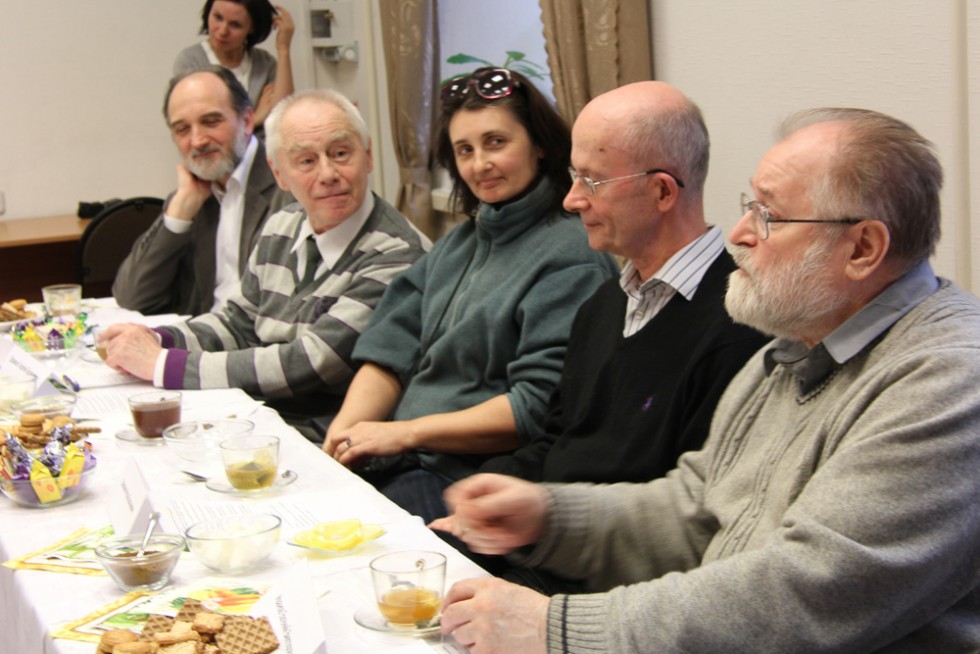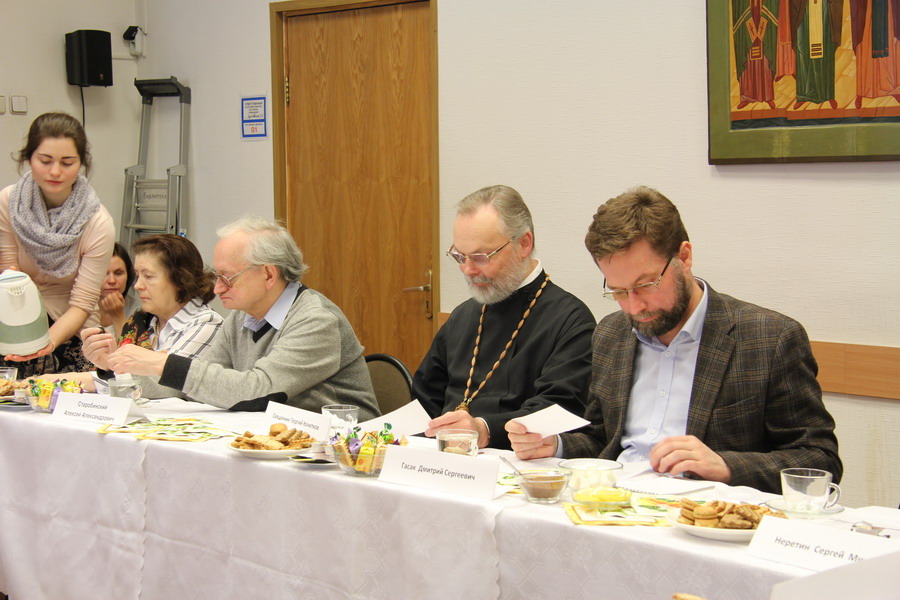Man Runs Risks of Being not Fulfilled
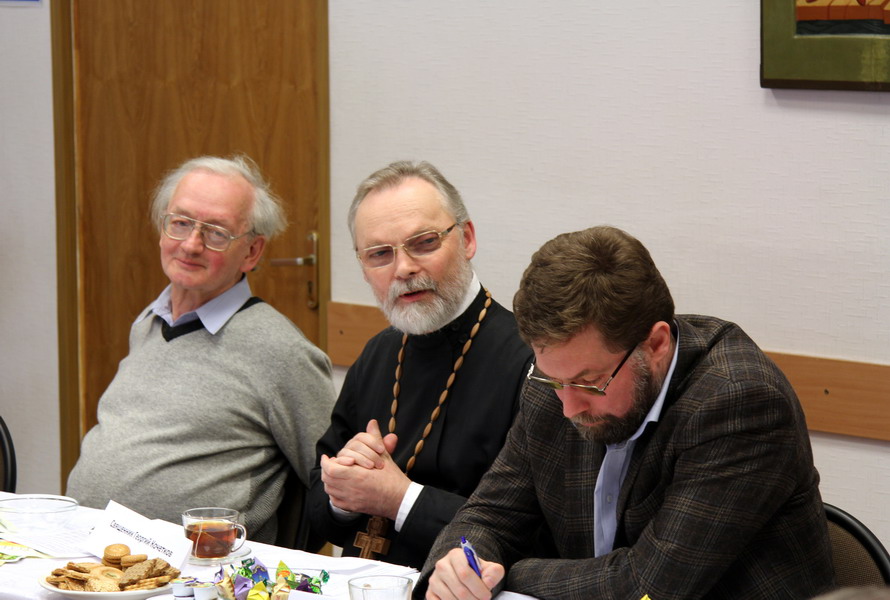
Alexey Starobinsky, Academician of the Russian Academy of Sciences, Chief Research Associate at the L. D. Landau Institute for Theoretical Physics; the Rev. Prof. Georgy Kochetkov, Rector of St Philaret`s Institute; Dmitry Gasak, Vice-Rector of St Philaret`s Institute
The conversation involved Alexey Starobinsky, winner of Gruber Prize in Cosmology (2013), Academician of the Russian Academy of Sciences, Chief Research Associate at the L. D. Landau Institute for Theoretical Physics, Doctors in Physics and Mathematics Alexander Bagrov (Institute of Astronomy of the RAS), Galina Shpatakovskaya (the M. V. Keldysh Institute of Applied Mathematics), Corresponding Member of the RAS Igor Volovich (the V. A. Steklov Institute of Mathematics in Moscow); PhDs in Physics and Mathematics Sergey Apenko (the P. N. Lebedev Institute of Physics of the RAS, St Philaret`s Institute), Evgeniy Ivanov (the N. V. Pushkov Institute of Terrestrial Magnetism, Ionosphere and Radio Waves Propagation of the RAS), Georgy Efimov(the M. V. Keldysh Institute of Applied Mathematics); Sergey Neretin (National Research Centre "Kurchatov Institute").
St Philaret's Institute was represented by the Rev. Georgy Kochetkov, Rector, PhD in Theology;Dmitry Gasak, Vice-Rector; Alexander Kopirovsky, Academic Secretary, PhD in Pedagogy; heads of chairs Grigory Gutner, Doctor in Philosophy, and David Gzgzyan, PhD in Philology. The roundtable was moderated by Maxim Zelnikov, Senior Research Associate at the P. N. Lebedev Institute of Physics of the RAS, Professor at St Philaret`s Institute, PhD in Physics and Mathematics.
What is man?
Is man either a servant of God or a product of society, either a result of natural selection or a creature related to God? Intelligence and speech cannot be deduced from the evolution of animal sign systems, said Professor of St Philaret`s Institute Dr. Grigory Gutner. "There is something in man that transcends the universe and does not exist elsewhere", he added. Alexander Kopirovsky, Professor of Aesthetics at St Philaret`s Institute, noticed that the image of God in man is not the same as an artistic image. It is a window into infinity in which there are dynamics and incompleteness.
What are the relations between man and the world?
Does the anthropic principle mean that "man is the measure of all things"? According to Academician Alexey Starobinsky, data of modern science allow to consider that physical laws in the entire universe are not overall and do not "fit" human being, but rather that there is an "ecological niche" in the world where man can live.
Is God involved in the life of the world and the human being?
Leading Research Associate at the Institute of Astronomy of the RAS Alexander Bagrov supposed that in case of human extinction God and the world would continue to exist without man. Evgeniy Ivanov, Senior Research Associate at the N. V. Pushkov Institute of Terrestrial Magnetism, Ionosphere and Radio Waves Propagation, expressed a deistic view: having created the world, God does not intervene with its destiny. The Rev. Georgy Kochetkov, Rector of St Philaret`s Institute, did not agree with him and said that the issue is not in God but in man: it depends on whether man is willing to communicate with God who reveals himself to him and wants to be involved in the life of his creation. Man loves freedom as well as God but often misconceives it, remarked the Rev. Georgy.
According to Professor of St Philaret`s Institute David Gzgzyan, man is a "bearer of concentrated risks". Every animal being occupies a certain niche, peculiar to its species in the world. However, even God Himself does not know whether man becomes man. Rationality by itself is not a guarantee of humanity: one should also be determined and courageous to use one’s own mind, Dr. Grigory Gutner cited the thought of Immanuel Kant. "Man is the only God's creation that runs risks of being not fulfilled. And then God risks being not fulfilled with man”, added David Gzgzyan.
***
As mentioned by Academician Alexey Starobinsky, there are contradictions in modern science. Are there any contradictions in God, the world and man? The participants in the roundtable agreed to choose this issue as the topic of the next meeting.
This roundtable is the fifth one within the conference “Theology and Physics” that began in March 2013. The conference aims to restore the tradition of unconstrained dialogue between representatives of basic science and fundamental Christian theology. Previous meetings were dedicated to the discussions about the origin of the universe, the place of man in it and the ways of human cognition as well as about the criteria of truth in scientific and theological knowledge.
Translated by Alina Patrakova
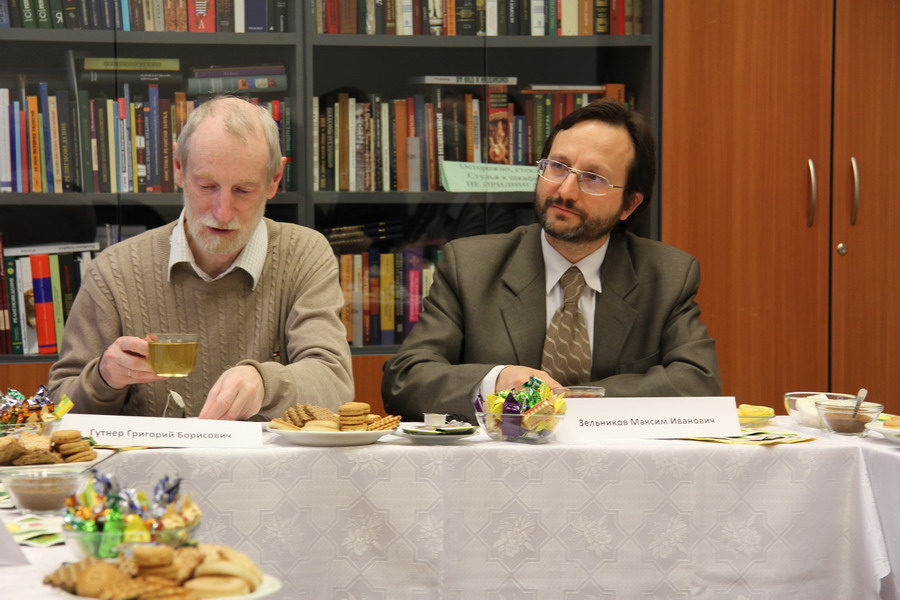
Grigory Gutner, Head of the Department of Philosophy and Humanities at St Philaret`s Institute, Leading Research Associate at the Institute of Philosophy of the RAS, and Maxim Zelnikov, Senior Research Associate at the P. N. Lebedev Institute of Physics of the RAS, Professor at St Philaret`s Institute
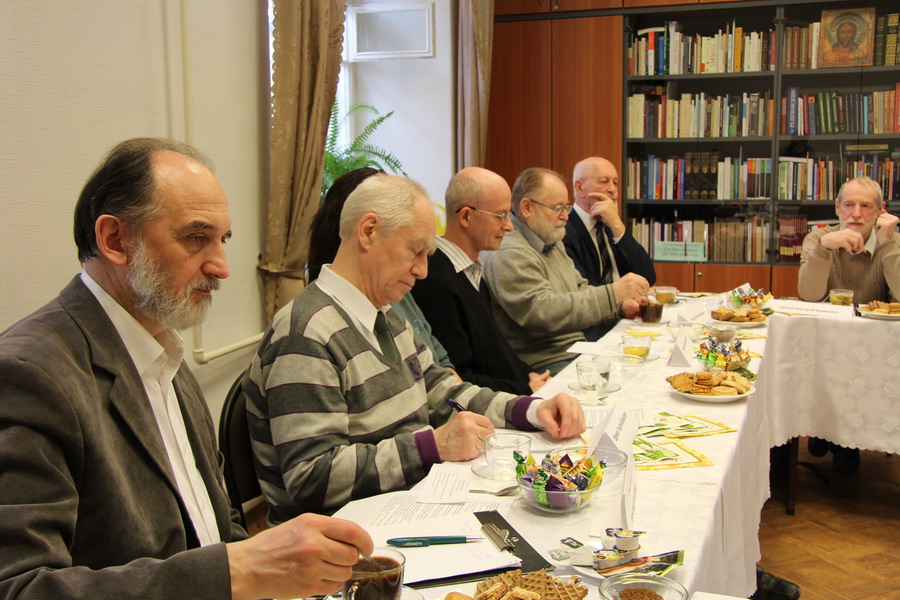
Alexander Kopirovsky (St Philaret`s Institute); Georgy Efimov (the M. V. Keldysh Institute of Applied Mathematics); Corresponding Member of the RAS Igor Volovich (the V. A. Steklov Institute of Mathematics in Moscow); Evgeniy Ivanov (the N. V. Pushkov Institute of Terrestrial Magnetism, Ionosphere and Radio Waves Propagation of the RAS); Alexander Bagrov (Institute of Astronomy of the RAS); Grigory Gutner (St Philaret`s Institute/the Institute of Philosophy)
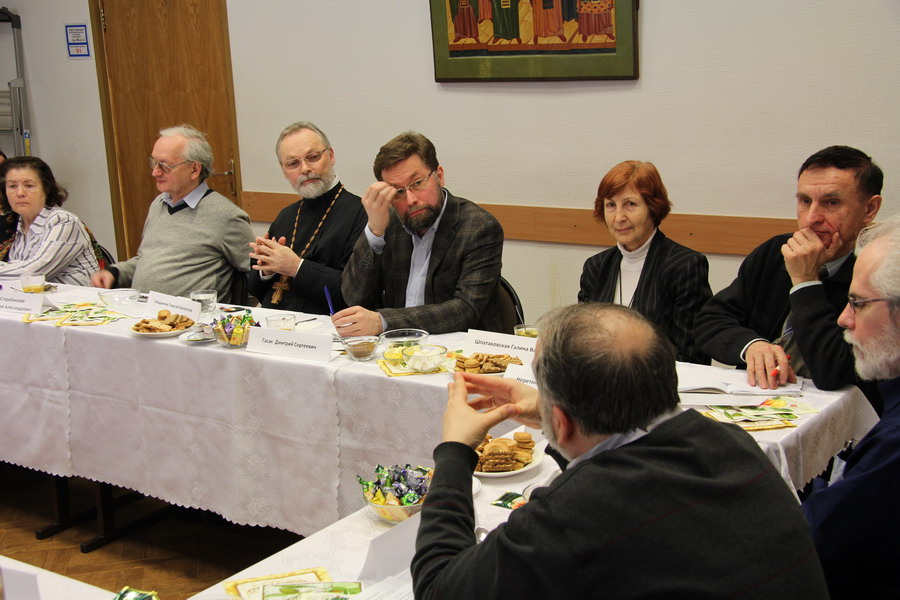
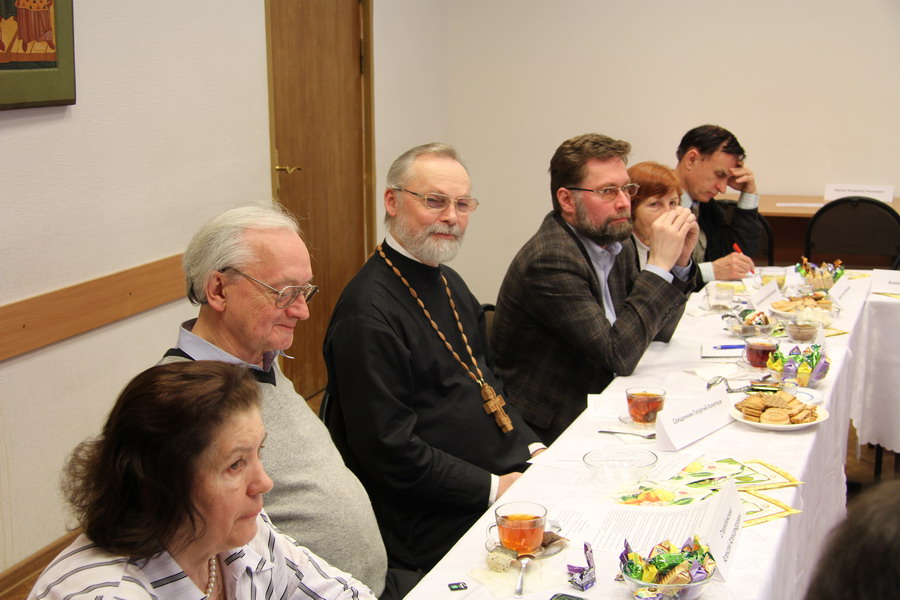
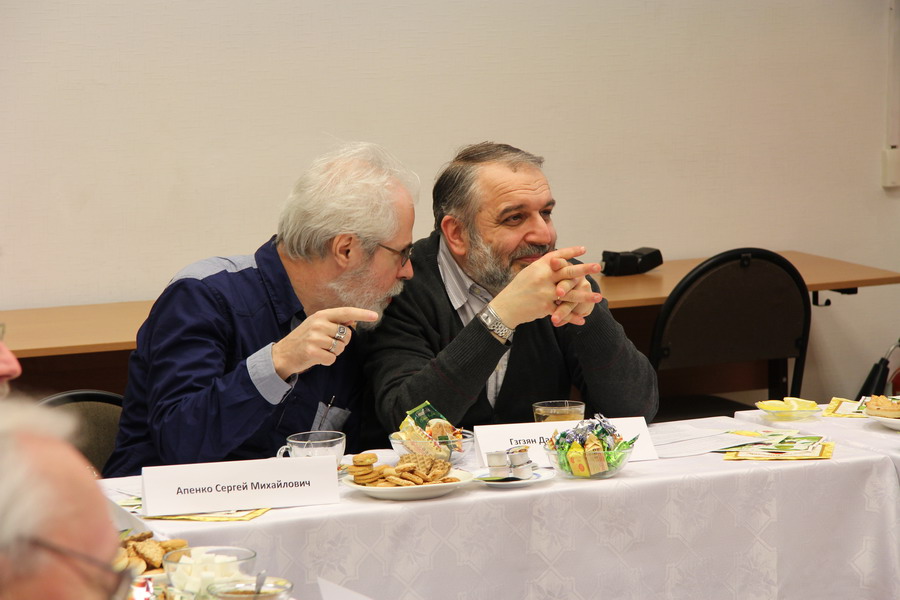
Sergey Apenko, Senior Research Associate at the P. N. Lebedev Institute of Physics of the RAS, Professor at St Philaret`s Institute, and David Gzgzyan, Head of the Department of Theological Studies and Liturgics at St Philaret`s Institute
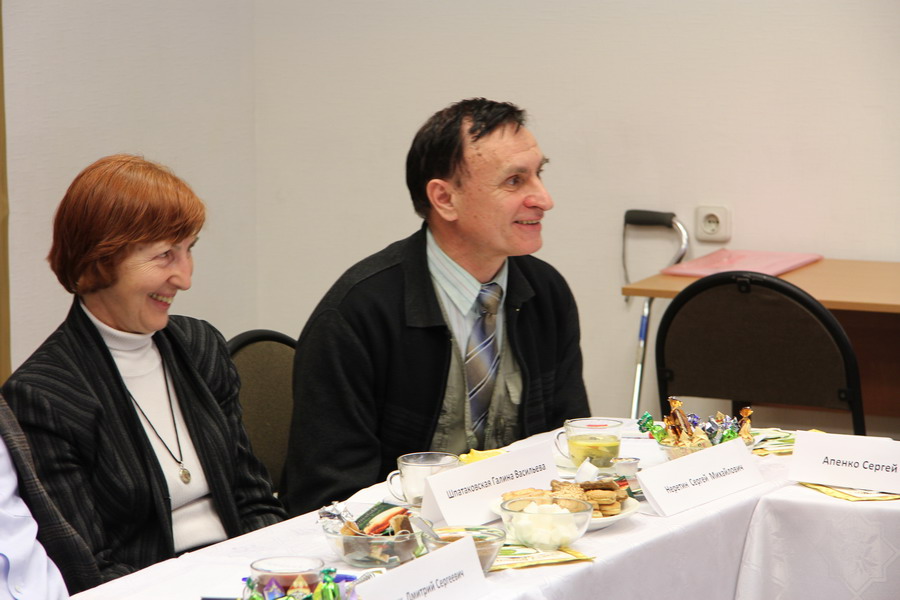
Galina Shpatakovskaya, Leading Research Associate at the M. V. Keldysh Institute of Applied Mathematics; Sergey Neretin, Chief Specialist at National Research Centre "Kurchatov Institute"
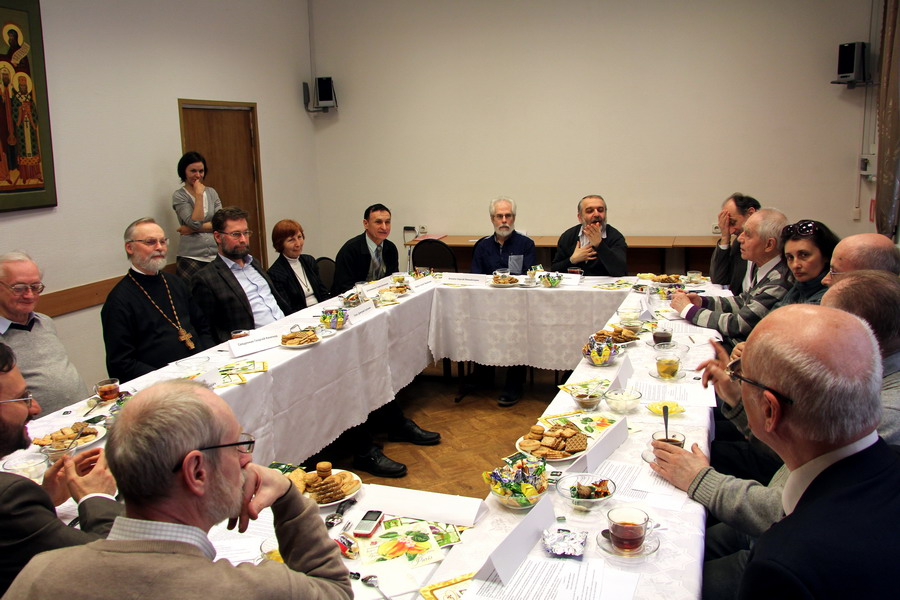
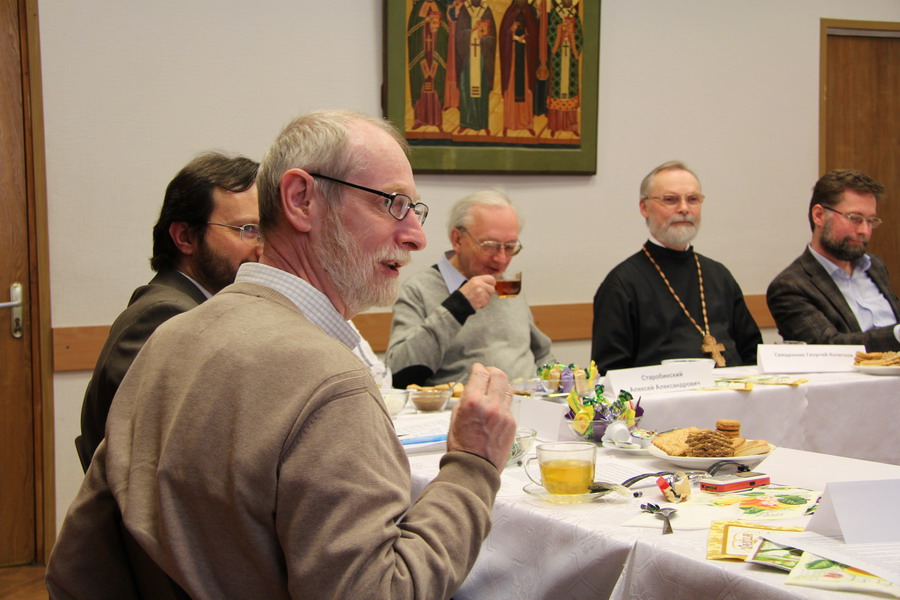
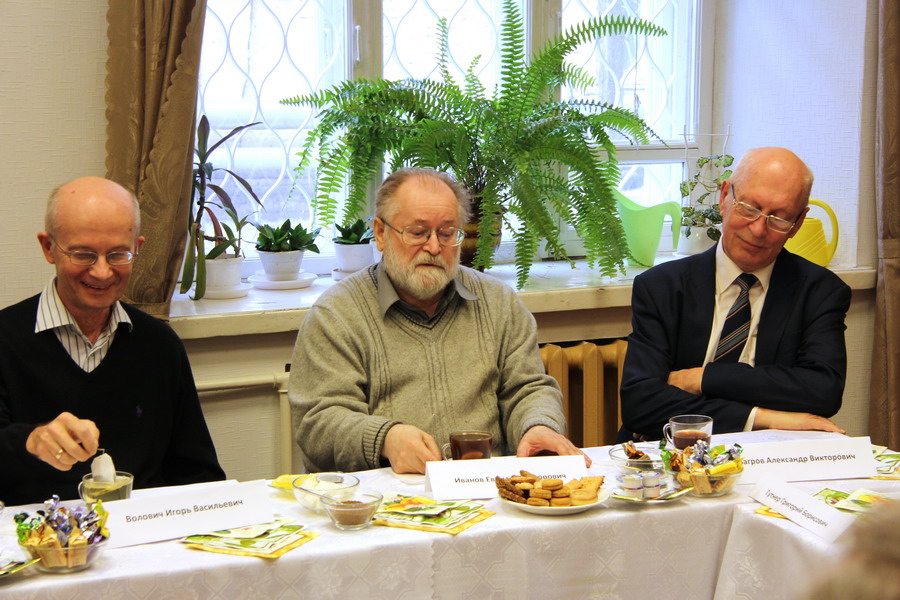
Corresponding Member of the RAS Igor Volovich (the V. A. Steklov Institute of Mathematics in Moscow); Evgeniy Ivanov (the N. V. Pushkov Institute of Terrestrial Magnetism, Ionosphere and Radio Waves Propagation of the RAS); Alexander Bagrov (Institute of Astronomy of the RAS)
